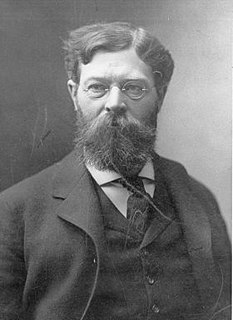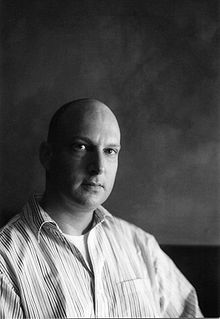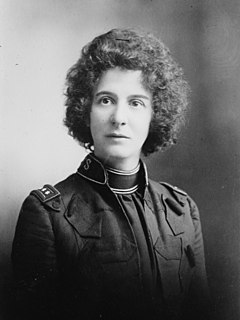A Quote by Carlos Ruiz Zafon
There was no more good or evil in this world than we imagine there to be, either out of greed or out of innocence. Or sometimes madness.
Related Quotes
The world we live in is a world of mingled good and evil. Whether it is chiefly good or chiefly bad depends on how we take it. To look at the world in such a way as to emphasize the evil is the art of pessimism. To look at it in such a way as to bring out the good, and throw the evil into the background, is the art of optimism. The facts are the same in either case. It is simply a question of perspective and emphasis.
It is more important that innocence be protected than it is that guilt be punished, for guilt and crimes are so frequent in this world that they cannot all be punished. But if innocence itself is brought to the bar and condemned, perhaps to die, then the citizen will say, "whether I do good or whether I do evil is immaterial, for innocence itself is no protection," and if such an idea as that were to take hold in the mind of the citizen that would be the end of security whatsoever.
People who remember court madness through pain, the pain of the perpetually recurring death of their innocence; people who forget court another kind of madness, the madness of the denial of pain and the hatred of innocence; and the world is mostly divided between madmen who remember and madmen forget.
Imagine discovering a continent so vast that it may have no end to its dimensions. Imagine a new world with more resources than all our future greed might exhaust, more opportunities than there will ever be entrepreneurs enough to exploit, and a peculiar kind of real estate that expands with development. Imagine a place where trespassers leave no footprints, where goods can be stolen infinite number of times and yet remain in the possession of their original owners, where business you never heard of can own the history of your personal affairs.
Imagine that the world is made out of love. Now imagine that it isn’t. Imagine a story where everything goes wrong, where everyone has their back against the wall, where everyone is in pain and acting selfishly because if they don’t, they’ll die. Imagine a story, not of good against evil, but of need against need against need, where everyone is at cross-purposes and everyone is to blame.
In this world, there is no absolute good, no absolute evil," the man said. "Good and evil are not fixed, stable entities, but are continually trading places. A good may be transformed into an evil in the next second. And vice versa. Such was the way of the world that Dostoevsky depicted in The Brothers Karamazov. The most important thing is to maintain the balance between the constantly moving good and evil. If you lean too much in either direction, it becomes difficult to maintain actual morals. Indeed, balance itself is the good.
Drink has shed more blood, hung more crepe, sold more homes, plunged more people into bankruptcy, armed more villains, slain more children, snapped more wedding rings, defiled more innocence, blinded more eyes, dethroned more reason, wrecked more manhood, dishonored more womanhood, broken more hearts, blasted more lives, driven more to suicide and dug more graves than any other evil that has cursed the world.
The innocence of those who grind the faces of the poor, but refrain from pinching the bottoms of their neighbour's wives! The innocence of Ford, the innocence of Rockefeller! The nineteenth century was the Age of Innocence--that sort of innocence. With the result that we're now almost ready to say that a man is seldom more innocently employed than when making love.
Evil is thus a kind of parasite on goodness. If there were no good by which to measure things, evil could not exist. Men sometimes forget this, and say, there is so much evil in the world that there cannot be a God. They are forgetting that, if there were no God, they would have no way of distinguishing evil from goodness. The very concept of evil admits and recognizes a Standard, a Whole, a Rule, an Order. Nobody would say that his automobile was out of order if he did not have a conception of how an automobile ought to run.







































